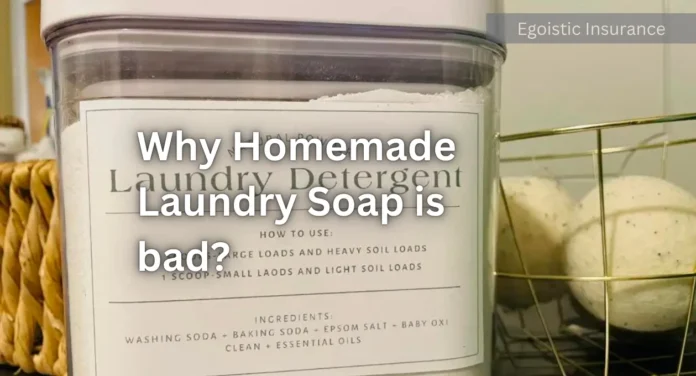There are several reasons why homemade laundry soap is bad? it might not be as beneficial as it seems. This blog will explore the various risks, safety concerns, and drawbacks associated with homemade laundry soap, providing a detailed analysis of why it may be better to stick with commercial detergents.
One significant concern with homemade laundry soap is the inconsistency in the ingredients used. Unlike commercial detergents that undergo rigorous testing and standardization, DIY recipes can vary widely in composition. This inconsistency can lead to ineffective cleaning, leaving clothes dirty or stained, and potentially damaging fabrics over time. Furthermore, users may inadvertently mix incompatible ingredients, resulting in undesired chemical reactions that could compromise their laundry.
Another issue is the lack of necessary additives present in commercial detergents that enhance cleaning efficiency. Many store-bought products contain surfactants, enzymes, and brighteners specifically designed to tackle tough stains and maintain colours. Homemade versions often lack these powerful components, which means they may not only fail to clean effectively but could also leave behind residues that attract dirt. Ultimately, this can lead to more frequent washing and an increase in water and energy consumption, counteracting the initial intent of saving resources.
Homemade Laundry Soap Risks
One of the primary concerns with homemade laundry soap is the potential risks involved. Most recipes for DIY laundry soap contain basic ingredients like soap flakes, washing soda, and borax. However, these ingredients may not be as effective or safe as those found in commercial detergents. For example, soap flakes may not fully dissolve in cold water, leaving residue on your clothes and in your washing machine, which can lead to buildup and potentially damage your appliance over time.
Moreover, the safety of using homemade laundry soap can be a significant concern, particularly for households with children or pets. Ingredients such as borax can be hazardous if ingested or if they come into contact with skin, leading to irritation or allergic reactions. Additionally, improper storage of DIY cleaning products can pose risks, as they might be mistaken for food items, especially by curious little hands. The peace of mind that comes with using commercially tested and regulated products often outweighs the benefits of DIY solutions.
Homemade Detergent Safety
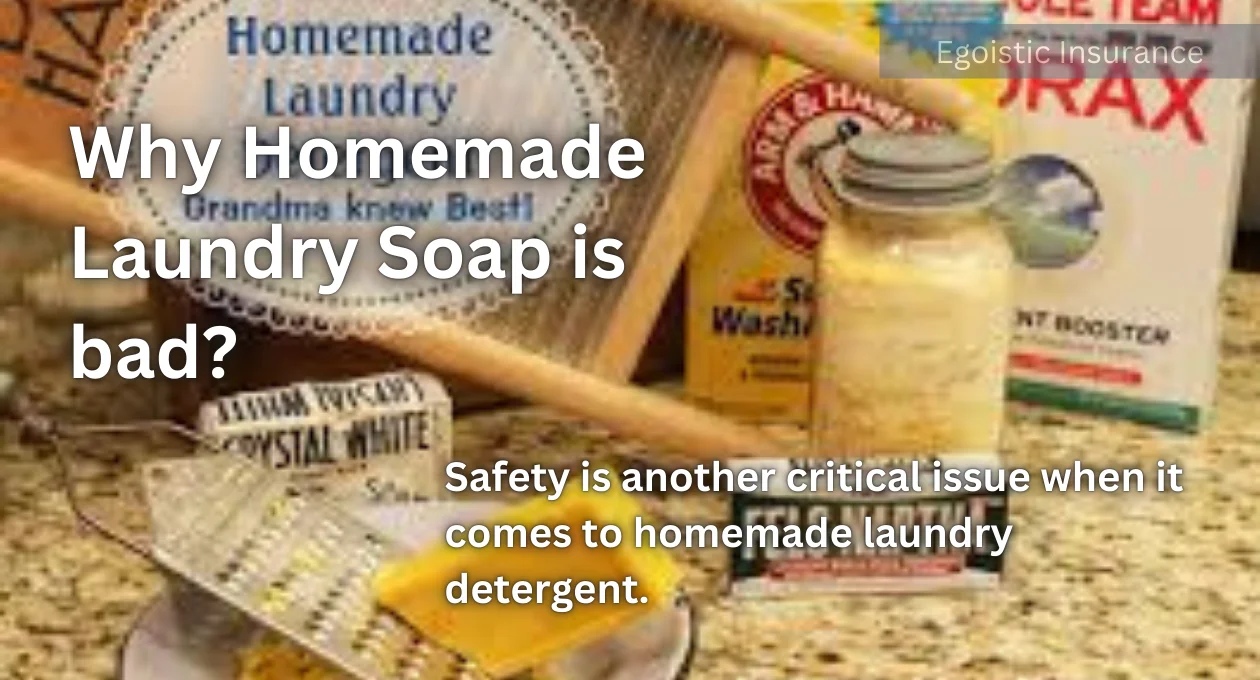
Safety is another critical issue when it comes to homemade laundry detergent. Many recipes call for the use of ingredients like borax, which can be harmful if not handled properly. Borax, in particular, can cause skin irritation, respiratory issues, and even hormonal disruption if used in large quantities or if not properly rinsed out of clothing. Moreover, the lack of preservatives in homemade detergents can lead to the growth of mold and bacteria, posing additional health risks.
DIY Laundry Soap Problems
DIY laundry soap often suffers from a lack of consistency and effectiveness. Unlike commercial detergents, which are formulated through rigorous testing to ensure they work effectively in a variety of water types and temperatures, homemade laundry soap is a one-size-fits-all solution. This can lead to problems with cleaning performance, especially in hard water areas, where the soap may not work as intended, leaving clothes looking dingy and unclean.
Another factor to consider is the environmental impact of homemade laundry soap compared to commercial options. While many individuals choose to create their own detergents with the intention of reducing chemical usage, the reality is that some DIY recipes can still contain harmful substances that may not be biodegradable. Additionally, the effectiveness of cleaning agents in store-bought detergents is often optimized for lower water usage, further reducing the ecological footprint. By relying on well-researched commercial products, consumers can better balance their desire for sustainability with effective cleaning results, ensuring both their clothes and the planet are cared for.
Issues with Homemade Laundry Soap
Homemade laundry soap can also lead to several issues that you may not anticipate. For instance, the soap can cause buildup in your washing machine, leading to clogs and mechanical problems over time. Additionally, the soap’s inability to break down fully in water can result in residue on your clothes, causing skin irritation and making your laundry feel less fresh.
In conclusion, while the allure of homemade laundry soap may be strong due to its perceived cost-effectiveness and natural ingredients, the potential drawbacks are significant. The risks associated with ingredient inconsistency, safety concerns, and the lack of effective cleaning agents can ultimately lead to unsatisfactory laundry results. Additionally, the environmental impact of certain homemade recipes may not be as advantageous as one might hope. For these reasons, sticking with commercially formulated detergents is often the wiser choice for maintaining both your clothes and your peace of mind.
Homemade Soap vs. Commercial Detergent
When comparing homemade soap to commercial detergent, it’s clear that commercial products have the upper hand in terms of cleaning power, safety, and convenience. Commercial detergents are specifically formulated to remove stains, odors, and bacteria effectively, without leaving residue or damaging your washing machine. They also contain enzymes and surfactants designed to work in a variety of water conditions, ensuring your clothes come out clean every time.
Furthermore, the convenience of using commercial detergents cannot be overstated. Many brands offer pre-measured pods or strips that eliminate the guesswork involved in DIY recipes, making laundry day simpler and more efficient. Additionally, these products are often backed by scientific research and rigorous testing, ensuring optimal performance with minimal effort. This reliability not only saves time but also provides assurance that your garments are properly cleaned and cared for.
Homemade Laundry Detergent Drawbacks
The drawbacks of homemade laundry detergent go beyond just cleaning effectiveness. These DIY solutions often lack the necessary ingredients to soften water, which can lead to mineral buildup on your clothes and inside your washing machine. Over time, this can cause your clothes to look dull and your washing machine to become less efficient, potentially shortening its lifespan.
In addition to the concerns already mentioned, homemade laundry detergents can also result in less predictable results. Variations in ingredient quality, water hardness, and laundry load types may affect how well the soap performs, leading to some batches working better than others. Furthermore, the absence of a comprehensive formulation means that homemade options may not be equipped to tackle specific laundry challenges, such as removing tough grease stains or odours effectively. In contrast, commercial products typically offer targeted formulas designed to address a wide range of cleaning needs, making them a more reliable choice for consistent laundry results.
Risks of DIY Laundry Detergent
Using DIY laundry detergent can expose you to several risks, especially if you’re not careful with the ingredients you choose. Borax, for example, is a common ingredient in many homemade detergent recipes but is also a known irritant. If not fully rinsed out of clothing, it can cause skin rashes, irritation, and even respiratory problems if inhaled. The use of essential oils, another common ingredient, can also pose risks, especially for those with sensitive skin or allergies.
Moreover, the financial implications of using homemade detergents should not be overlooked. While the initial cost of materials may seem lower, the potential need for supplementary cleaning agents or repairs due to machine buildup can quickly escalate expenses. Over time, these hidden costs can undermine the perceived savings, positioning commercial detergents as a more economical and dependable choice. Investing in proven cleaning products ultimately safeguards both your wardrobe and your appliances for the long haul.
Homemade Laundry Soap Effectiveness
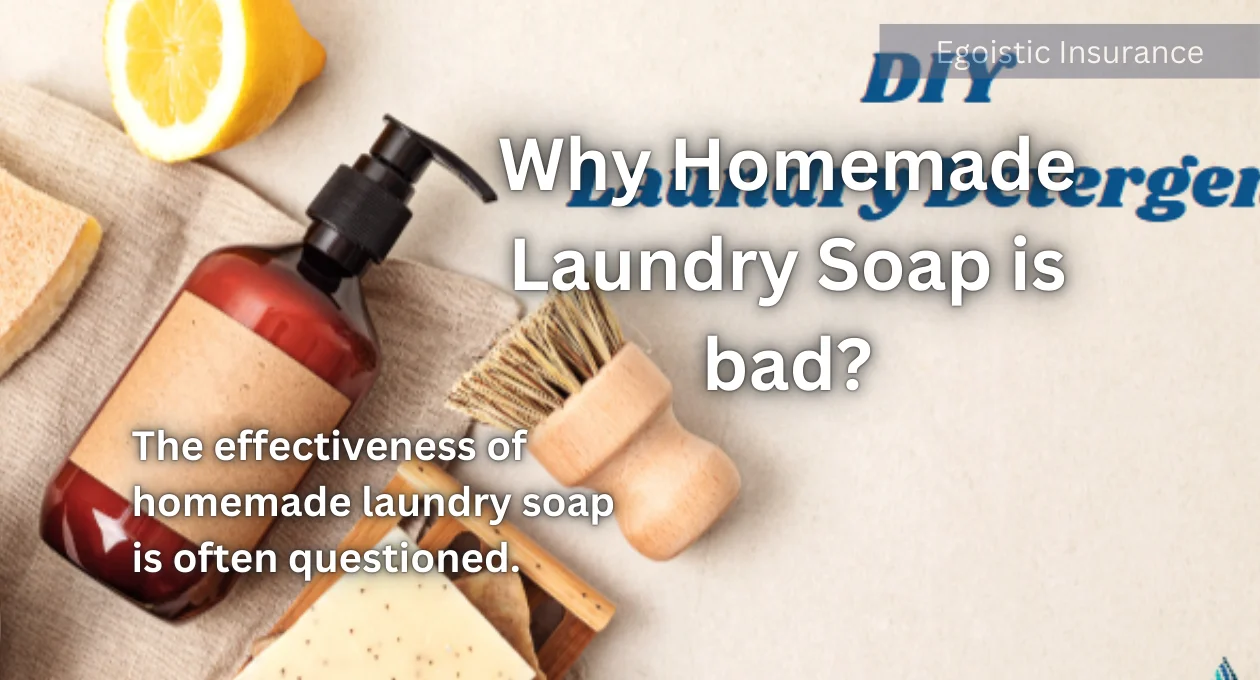
The effectiveness of homemade laundry soap is often questioned. While it may work for some people, especially those with soft water, it generally doesn’t perform as well as commercial detergents. Homemade soap lacks the surfactants and enzymes found in commercial products, which are essential for breaking down stains and removing dirt effectively. As a result, your clothes may not come out as clean or fresh as you’d like.
Additionally, many consumers appreciate the variety of scents and formulations available in commercial detergents, allowing them to choose products that suit their preferences and laundry needs. These options often include hypoallergenic and fragrance-free varieties for sensitive skin, as well as eco-friendly alternatives that align with sustainable practices. This diversity helps consumers find the perfect balance of efficacy and personal care, elevating their overall laundry experience. By investing in these specialized products, users can enjoy peace of mind knowing their clothes are not only clean but also treated with the utmost consideration for Itheir health and the environment.
Homemade Detergent issues
One of the biggest issues with homemade detergent is its inconsistency. Because these detergents are made from basic ingredients, they don’t always perform well in different water conditions. In hard water, for instance, the soap may not dissolve properly, leading to residue buildup on your clothes and in your washing machine. This can result in clothes that look dull, feel stiff, and may even have an unpleasant odor.
Another important consideration when choosing between homemade and commercial detergents is the impact on the environment. While many DIY recipes tout their eco-friendliness, they may still contain ingredients that can harm aquatic life if not properly managed. In contrast, many commercial brands offer products that are certified biodegradable and contain plant-based ingredients, providing safer options for those concerned about environmental sustainability. Ultimately, making an informed decision about laundry products can contribute not only to cleaner clothes but also to a healthier planet.
Laundry Soap Health Concerns
Health concerns are another significant factor to consider when using homemade laundry soap. As mentioned earlier, ingredients like borax can cause skin irritation and respiratory problems. Additionally, the lack of preservatives in homemade soap means that it can harbor mold and bacteria, which can be transferred to your clothes during the washing process. This can be especially problematic for individuals with allergies, asthma, or other respiratory conditions.
Furthermore, the preparation of homemade laundry detergents requires careful measurement and attention to detail, which can be impractical for many individuals. Time constraints and the hassle of sourcing specific ingredients can deter users from maintaining a consistent laundry routine. In contrast, commercial detergents provide a convenient solution, allowing users to simply grab a bottle and start their laundry with minimal effort. This convenience factor not only saves time but also ensures reliability, making it a preferred option for busy households.
Homemade Laundry Soap Damage
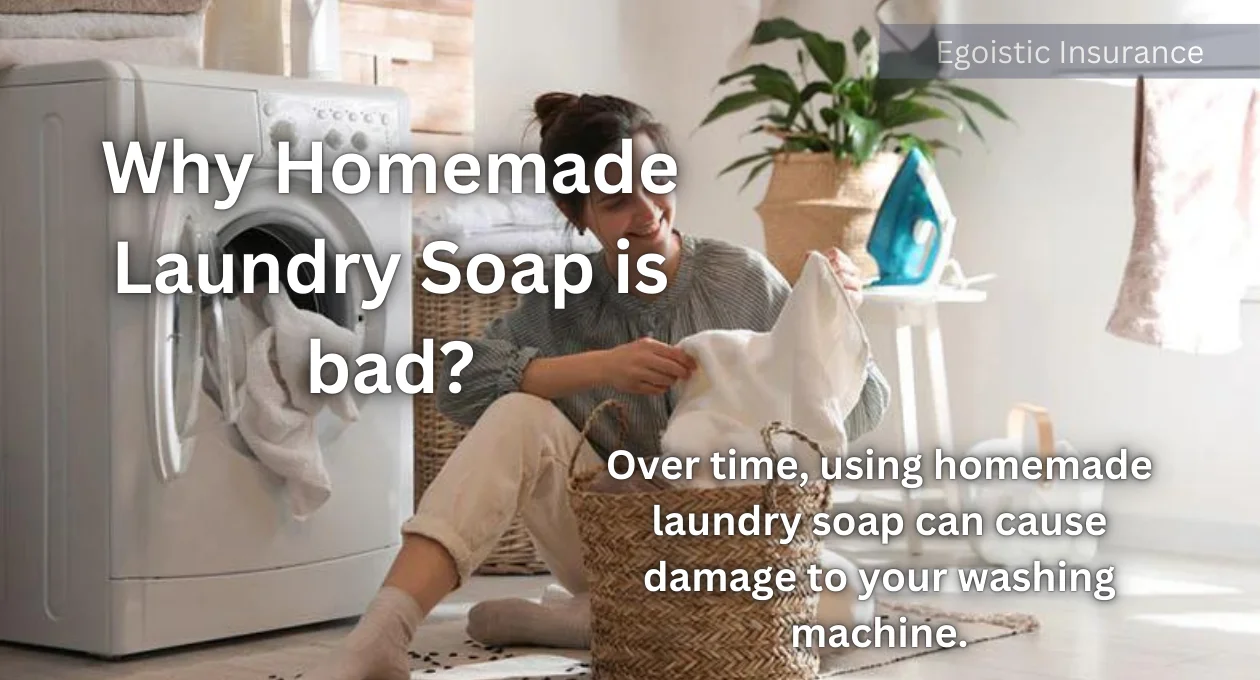
Over time, using homemade laundry soap can cause damage to your washing machine. The soap’s inability to dissolve fully can lead to buildup in the machine’s pipes and drum, causing clogs and mechanical issues. Additionally, the lack of water softeners in homemade detergent can result in mineral deposits, which can wear down the machine’s components and reduce its efficiency.
It’s essential to weigh the pros and cons of both homemade and commercial laundry detergents before making a choice. Many consumers find that while homemade solutions may seem appealing due to their natural ingredients, they often fall short in performance and convenience. Commercial detergents, with their advanced formulations, tend to provide reliable and effective cleaning while also considering safety and environmental impact. Ultimately, selecting a detergent that fits your cleaning needs and lifestyle can lead to a more satisfying laundry experience.
Problems with Homemade Washing Powder
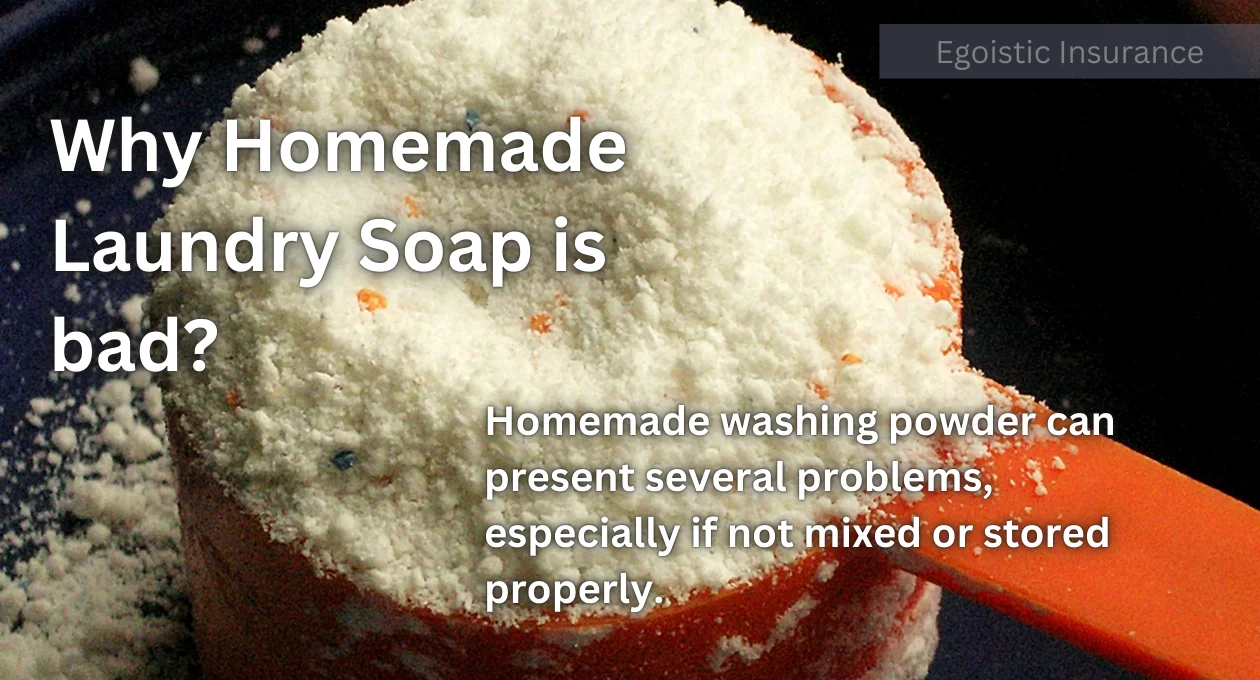
Homemade washing powder can present several problems, especially if not mixed or stored properly. If the ingredients aren’t thoroughly combined, the detergent may not work effectively, leading to uneven cleaning results. Additionally, improper storage can cause the powder to clump or absorb moisture, reducing its effectiveness and potentially causing issues with your washing machine.
When considering the choice between homemade and commercial detergents, it’s crucial to assess not only cleaning effectiveness but also the long-term implications for your health and appliances. While homemade options may appear less expensive upfront, the potential for machine damage and inadequate cleaning can lead to greater costs down the road. Consumers should take into account how often they do laundry, the types of fabrics they wash, and any allergies or sensitivities when selecting their detergent. Ultimately, understanding the broader impact of these choices can help ensure a more satisfactory and sustainable laundry experience.
FAQs
1. Are homemade laundry detergents safe to use?
While many homemade detergents use natural ingredients, some components, like borax, can cause skin irritations or respiratory problems. It’s essential to research and test recipes thoroughly to ensure safety, particularly for sensitive individuals.
2. How do homemade and commercial detergents compare in effectiveness?
Commercial detergents are often formulated with specific chemicals that enhance cleaning performance, particularly in varied water conditions. Homemade detergents can vary widely in effectiveness depending on the ingredients and preparation methods used.
3. Can I use homemade laundry detergent in all washing machines?
Not all washing machines respond well to homemade detergents. Some machines may experience residue buildup or clogging due to undissolved soap, especially if the recipe isn’t suited for the machine type.
4. Is it environmentally friendly to use homemade laundry detergents?
While homemade detergents can be eco-friendly if made with safe, biodegradable ingredients, they may still contain substances that can impact aquatic life if not properly managed. In comparison, many commercial brands offer eco-certified options designed with sustainability in mind.
5. How often do I need to clean my washing machine if I use homemade detergent?
Using homemade detergent may require more frequent maintenance to prevent buildup and clogs. Regularly running a maintenance cycle with vinegar or a washing machine cleaner can help keep your appliance in good condition.
Conclusion
While the idea of making your own laundry detergent may seem appealing, the risks and drawbacks far outweigh the benefits. From potential health concerns to the damage it can cause to your washing machine, homemade laundry soap is simply not worth the trouble. Commercial detergents are specifically formulated to clean effectively, safely, and consistently, making them a far better choice for your laundry needs. Before you embark on a DIY detergent project, consider the potential risks and choose a reliable commercial product instead.
When opting for laundry detergents, it’s essential to consider the overall value they provide. While homemade options may appear cost-effective, the hidden costs such as maintenance, health risks, and inconsistent results can quickly add up. Conversely, investing in commercial detergents often means reliable cleaning power and safeguard against appliance wear. Making an informed choice can lead to a more efficient and worry-free laundry experience.
For more interesting information keep visiting egoisticinsurance.online


